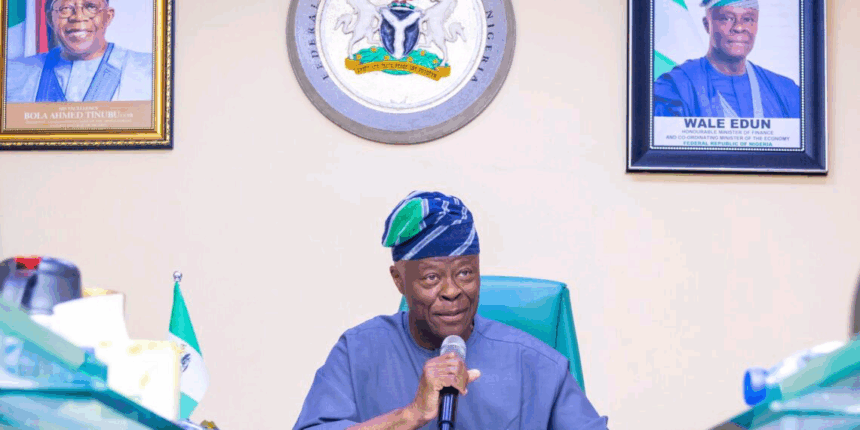-
Finance Minister says expansion aims to cushion economic hardship at grassroots level.
-
Government targets poor and vulnerable Nigerians through verified digital payment system.
-
Ward-based development initiative also unveiled to boost local empowerment.
The Federal Government has announced plans to expand its direct cash transfer programme to reach additional households across the country as part of efforts to mitigate the effects of ongoing economic reforms.
Minister of Finance and Coordinating Minister of the Economy, Wale Edun, made this known on Tuesday during the Oxford Global Think Tank Leadership Conference and Book Launch held in Abuja.
ATTENTION: Click “HERE” to join our WhatsApp group and receive News updates directly on your WhatsApp!
READ ALSO: Mathematics Remains Mandatory for O-Level Students, FG Clarifies
According to Edun, the initiative currently benefits over 15 million households, but will soon be scaled up to include more poor and vulnerable Nigerians.
Accountability and Transparency
“There is an attempt to ensure that the pains of reform are immediately alleviated. That’s why there is a transparent, accountable, and robust system of providing direct payments to 15 million households,” Edun stated.
He explained that each recipient is verified through national identity numbers and receives payments digitally, either via bank accounts or mobile wallets.
“In some places, people say they haven’t heard of anyone receiving the payments. We immediately call for the data to verify this because each individual is identified by name, NIN, and paid digitally. There is accountability, transparency, and a record,” he added.
Ward-Based Development Initiative
Edun also revealed plans for a ward-based development model, designed to channel resources directly to Nigeria’s 8,809 wards across the 774 local government areas.
“This will empower economically active people at the ward level—small businesses and cottage industries—by providing support and financing. It’s a key element in ensuring that the benefits of reforms reach the local level,” he said.
Call for Sustainable Investment
Founder of the Oxford Global Think Tank Leadership, Dr Arunma Oteh, urged policymakers to boost investment in infrastructure and human capital to drive long-term growth.
“China, over the years, invested 24 per cent of its GDP in infrastructure. At best, we do 4 to 5 per cent. If we want to bridge the infrastructure gap, we must raise this to at least 12 per cent,” Oteh said.
She emphasised the need for “patient capital” and policies that prepare young Nigerians for leadership and innovation-driven development.


